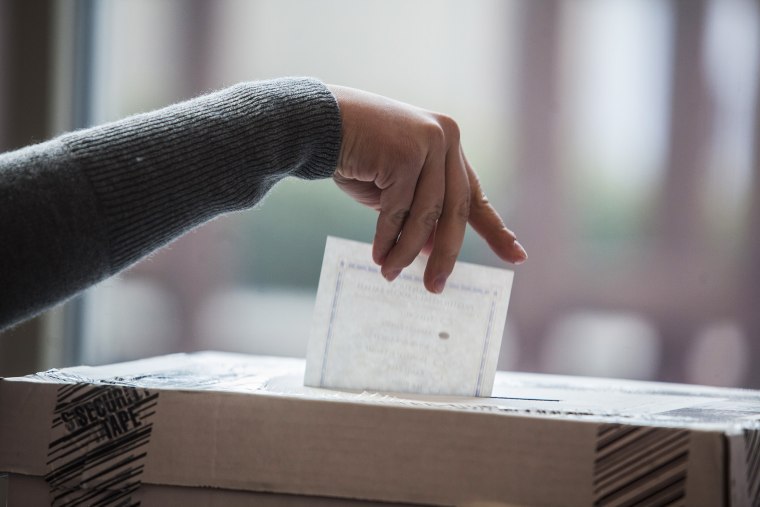During Paul LePage's (R) two terms as Maine's governor, progressive governance faced largely insurmountable hurdles. But with Gov. Janet Mills (D) in office, it's a new day in Maine.
Gov. Janet Mills on Wednesday signed an automatic voter registration bill into law. [...]Maine will automatically register voters who do business with the Bureau of Motor Vehicles by 2022 under the bill, which has a one-time cost of $140,000 in federal funds.Maine's secretary of state could also allow certain groups like private colleges to help automatically register voters.
For AVR proponents, this was obviously encouraging news, but it's not the only development of note: New York's state Senate easily passed an automatic-voter-registration proposal of its own yesterday, and the policy appears well on its way to becoming law fairly soon.
According to the tally from the Brennan Center for Justice, there are now 16 states, plus the District of Columbia, that have adopted AVR, including Maine. New York would be the 17th.
That's a third of the country. Not bad for a policy that didn't exist in any state as recently as four years ago.
Revisiting our previous coverage, I’ve long believed this is a policy that’s tough to argue against. When it comes to registering to vote in the United States, the burden has traditionally been on the individual: if you’re eligible to vote, it’s up to you to take the proactive steps needed to register.
Automatic voter registration, which already exists in many of the world’s democracies, flips that model.
The idea is exactly what it sounds like: under the policy, states automatically register eligible voters, shifting the burden away from the individual. Those who want to withdraw from the system can do so voluntarily without penalty, but otherwise, Americans would simply be added to the voters rolls as a matter of course.
This tends to be a Democratic priority, though I see it more as an example of good governance than a partisan tactic. After all, when Donald Trump won two years ago, voter registration wasn’t the principal problem for Dems; the failure of already registered voters to show up was a far more consequential issue. (For more along these lines, note Paul Glastris’ recent editorial in the Washington Monthly.)
That said, automatic voter registration, regardless of its electoral impact, looks like an idea whose time has come.
Postscript: At the federal level, it's worth noting that AVR is a key element of the House Democrats' "For the People Act" (H.R. 1), a voting-rights package that cleared the chamber in March. Senate Majority Leader Mitch McConnell (R-Ky.) has said he won't let the upper chamber consider the bill, calling it "socialist."
